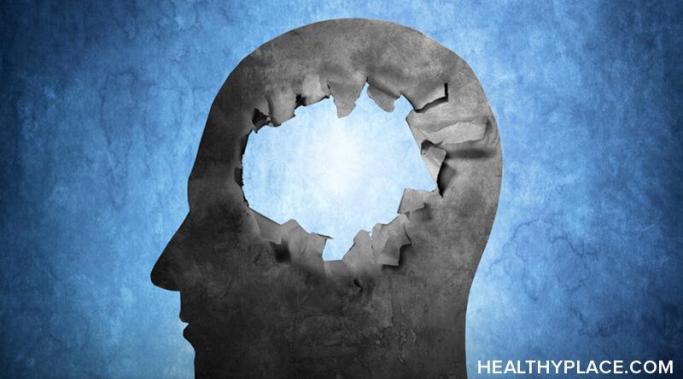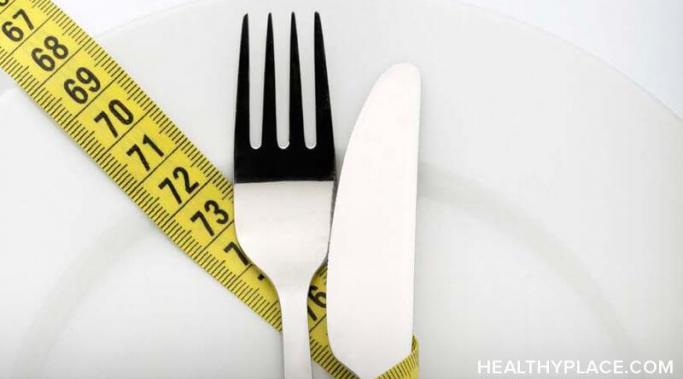My eating disorder relies on selective memory in order to maintain a stringent foothold in my life. Selective memories are enticing and compelling. They can also be quite dangerous. In fact, as I have come to realize, the presence of selective memory is often the difference between making continual strides in recovery or free-falling back into a cycle of relapse. What do I mean by this, and how am I learning to combat selective memory in my eating disorder? Let me explain.
Eating Disorders Treatment
I'm anxious for my first session with the personal trainer I hired to coach me for a Himalayan trek I'll be doing in about six months. It's quite unlike me to invest in an exercise program financially. Usually, I just lace up my sneakers and start running until I can't summon the energy for one more step. I even forget to stretch my muscles beforehand sometimes (terrible habit, I know).
I tend to be much more transparent and vulnerable online than I am in daily face-to-face interactions. When someone I know in real life inquires about my fitness or nutrition habits (because, to the surprise of no one, this is a body-conscious culture), I notice my cheeks start to flush, and I choose the vaguest answer possible. That reaction strikes me as curious, though. Why am I still embarrassed about my eating disorder after all these years?
I have a long history with perfectionism. In fact, I cannot recall a time in my life when this fixation wasn't driving my performance and achievements. I suspect this is one reason I have always been drawn to activities or pursuits that measure excellence in visible, quantifiable terms. In school, I only accepted straight As. In athletics, I gravitated to sports like archery, where I could aim for the center of a literal bullseye. And in my career, I have turned to writing—a skill based on technical precision. But as I continue to heal my thoughts and behaviors from the residue of anorexia, I am learning to appreciate that eating disorder recovery is not about perfection.
When I spent three months in residential treatment back in 2010, the clinicians would frequently encourage the other patients and me to communicate and honor our needs. This practice was meant to teach us how to separate our own inner voices from the control and influence of an eating disorder. As well-intentioned as these clinicians were, however, I remember asking myself: "How can I learn to express my needs if I'm not sure what they are?"
Hello, my name is Obsessed with Metrics. I say this with snark, but I also genuinely mean it. A few months ago, when I wrote about my exercise addiction, I briefly touched on how metrics fuel this behavior. I count the number of steps I take. I count the number of miles I run. I count the number of stairs I climb. I count the number of minutes I exercise. I count the number of calories I burn. At times, I feel like a human calculator—ironic, since math has never been my strong suit.
When I think about an anorexic mindset, two primary features stand out to me: deprivation and control. Within the eating disorder framework, these attributes often manifest in behaviors such as caloric restriction, compulsive exercise, food rituals, or body image obsession. However, an anorexic mindset can impact many areas of life outside the parameters of an eating disorder as well.
I’ve chosen to avoid pregnancy conversations over the years. I hesitate even to broach this subject in therapy sessions, and the reason is simple: I'm ambivalent about motherhood. The irony is I love children. I am a huge fan of my friends' little ones. I find my nieces and nephew irresistible. But I don't feel strong maternal instincts, and I lack the desire to parent children of my own.
I believe trauma is often a repercussion of eating disorder treatment. Of course, clinical interventions are helpful, beneficial, and even crucial parts of healing, but they can still be traumatic nonetheless. This might sound like an oxymoron, so let me explain the possible trauma of treatment.
Each year, as the calendar flips to November, I'm hit with a reminder of how complex the holiday season feels in eating disorder recovery. Of course, that's not unique to those with a history of eating disorders. This time of year can be overwhelming for anyone. In 2021, three out of five surveyed Americans felt their mental health worsen over the holidays, with 60 percent noticing a rise in anxiety and 52 percent noticing a rise in depression. Now couple all that with eating disorder stressors or behaviors, and this hectic season can become even more fraught. So with the 2022 festivities just around the corner, let's acknowledge it: The holidays are complex in eating disorder recovery—and that is alright.









